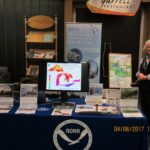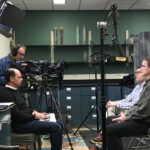Two opportunities to highlight NOAA’s mission of Science, Service and Stewardship NOAA’s Great Lakes Environmental Research Laboratory (GLERL) remote sensing scientist, Dr. George Leshkevich, and Information Services team member, Katherine Glassner-Shwayder, participated in Washtenaw Community College’s (WCC) Earth Day Month Celebration … Continue reading

May 30, 2017
by Katherine Glassner-Shwayder
Comments Off on NOAA GLERL staff participate in community education events



